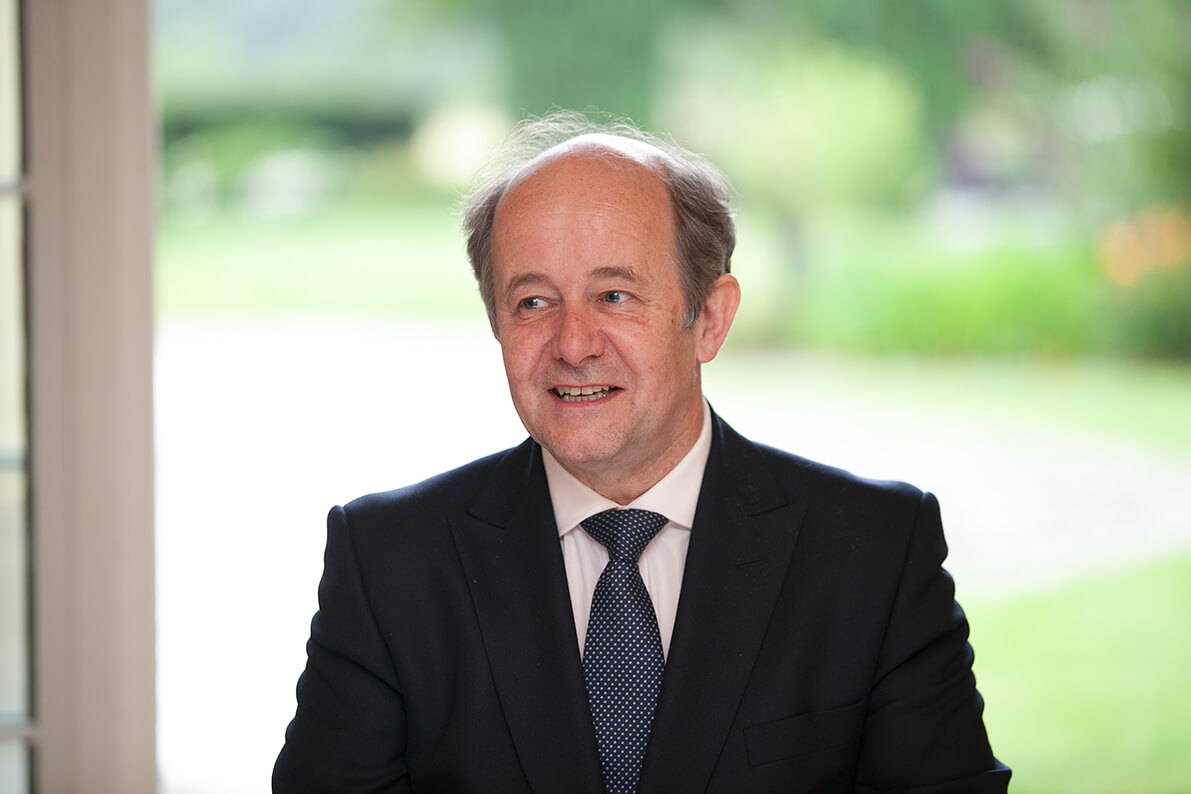Calling the shots – the implications of the Court of Appeal’s decision in NBT v Mints
-
Insight Article 15 November 2023 15 November 2023
-
UK & Europe
-
Geopolitical outlook
-
Regulatory & Investigations
The UK has implemented and enforced a robust sanctions regime in response to Russia’s invasion of Ukraine in February 2022 primarily through the Russia (Sanctions) (EU) Regulations 2019 (the “Regulations”), which, in common with all other UK sanctions regimes, impose assets freezes against particular designated persons, as well as any person owned and controlled by a designated person. It is these asset freeze provisions that were the focus of the Court of Appeal’s judgment in PJSC National Bank Trust & anor v Mints & ors [2023] EWCA Civ 1132.
Regulation 7(4) and the exercise of “control”
Under the Regulations the UK Secretary of State has the power to designate persons, subjecting them to measures that freeze their funds and economic resources.
The obligation to freeze funds and economic resources extends not only to designated persons, but to any person who is owned or controlled directly or indirectly (within the meaning of Reg 7) by the designated person. Reg 7 provides that a person is owned or controlled directly or indirectly by a designated person if the designated person holds more than 50% of the shares or voting rights in the person or the right to appoint / remove a majority of directors of the person (Reg 7(2), or it is reasonable to expect that the designated person would be able to conduct the affairs of the person in accordance with the designated person’s wishes (Reg 7 (4)). Determining whether a person (which includes corporates and unincorporated associates) is owned or controlled within the meaning of Reg 7(4), can be notoriously challenging. The wording of Reg 7 of the Regulations is substantially similar to wording in other UK sanctions regimes.
The Court of Appeal (“CoA”) has recently considered the issue of control within the meaning of Reg 7(4) in Mints, in the particular context of the designation of Russian President Vladimir Putin and Ms Nabiullina, the Governor of the Russian Central Bank, and the extent of their “control” of the Russian economy. The CoA’s decision has caused some degree of concern about its potential consequences, although the UK Government has recently stepped in to provide some clarification.
First instance
The underlying dispute between the parties concerned allegations by the Claimant banks, National Bank Trust (NBT) and Bank Okritie that the Defendants conspired with representatives of the Claimant banks to enter into uncommercial transactions whereby loans were replaced with worthless bonds, causing the banks to suffer losses of some US$850 million.
The Defendants had applied for a stay of proceedings on the basis that the litigation was affected by the designation of Bank Okritie under the Regulations. The Defendants also alleged that NBT was controlled by designated persons within the meaning of Reg 7(4) – namely Mr Putin as President of Russia and Ms Nabiullina as the Central Bank Governor. The Claimants conceded that if “control” extends to control via office by one means or another the control test would be satisfied in relation to NBT under Reg 7(4) in that either Mr Putin or Ms Nabiullina could exercise influence over it in significant respects.
When considering the stay application at first instance, as well as deciding whether judgment could be lawfully entered for a designated person and whether certain litigation related activities could be licensed by OFSI, Mrs Justice Cockerill had to determine whether NBT was controlled by Vladimir Putin / Ms Nabiullina.
Cockerill J dismissed the application, finding that a Court could enter judgment in favour of designated persons and that licences could be granted for the relevant litigation activities.
In respect of NBT, she held that it was not controlled by Mr Putin or Ms Nabiullina with the meaning of Reg 7 (4). Her view was expressed “briefly and somewhat tentatively” given that her earlier findings meant that the issue of NBT’s status did not have a practical impact upon the result. Nonetheless, she regarded Reg 7 (4) as a “backstop” provision to Reg 7(2)’s focus on ownership / control through shareholdings and voting rights which was designed to bite in situations where control could still be exercised other than through shareholding / voting rights (for example, in structures that involved Liechtenstein Anstalt’s or Jersey Foundations). She did not consider that it applied to control via political office.
The appeal
Despite the decision on NBT’s status being, strictly speaking, obiter (given the earlier decisions on the effect of designation on the rest of the claim), the CoA allowed an appeal on all three issues. It unanimously upheld Cockerill J’s decision that the Court could enter judgment in favour of designated persons and on licensing. However, it reached a contrary conclusion in relation to control under Reg 7(4).
Flaux C, with whom Popplewell and Newey LJ agreed, concluded that there was no political carve out from the concept of control for political office within Reg 7(4), and did not regard it as a mere adjunct or backstop to Reg 7(2). The use of the words “in all the circumstances” and “by whatever means” made it clear that the provision does not have any limit as to the means or mechanism by which a designated person is able to achieve the result of control – i.e. that the affairs of the company are conducted in accordance with his wishes. The court felt the description of Reg 7(4) applying where the designated person “called the shots”, to so speak, was an apt one.
Given the concession already made by the Claimants at first instance as to Mr Putin and Ms Nabiullina’s control, this decision had the effect of resulting in NBT being deemed designated.
It had been argued that, were Reg 7(4) to be construed to apply to political control, Mr. Putin’s position “at the apex of the command economy” would mean that he would control everything within Russia – leading to absurd results in terms of designations. The CoA’s view was that any such absurd consequences arose not from giving the legislation the clear and wide meaning it had but from the decision to designate Mr Putin himself without having thought through the consequences of Mr Putin being at the apex of a command economy – that he “called the shots”.
Fall out
One of the consequences of the CoA’s decision in Mints has been concern that most / all Russian companies may be deemed to be sanctioned under Reg 7(4) by virtue of Mr Putin’s ability to call the shots in Russia. Given that substantially similar wording is contained in other UK sanctions regimes, there has been some concern about the consequences of the designation of other political office holders who call the shots in other jurisdictions.
Some context must be given to the decision however. Although the CoA’s decision on Reg 7(4) was obiter and was therefore addressed “briefly” by the CoA in the decision, it was nonetheless reached following full argument from counsel. However, the practical consequences for NBT were largely the result of its factual concession at first instance that Mr Putin did control it in a political sense. It does not necessarily follow that the same is true of all Russian companies – or indeed private entities in other jurisdictions where political office holders are designated - and there must be some level of factual enquiry to determine whether that is actually the case in any given situation.
More pertinently, the UK Government is currently considering the impact of Mints, noting that the case was not decided on the interpretation of Reg 7(4), and that in the “interests of reducing uncertainty” it is exploring the options to clarify its position1. In the interim, the Foreign, Commonwealth and Development Office, the UK Government entity that has responsibility for designating persons under UK sanctions regimes, has helpfully indicated that there is no presumption on behalf of the Government that a private entity based in or incorporated in Russia or any jurisdiction in which a public official is designated is in itself sufficient evidence to demonstrate that the relevant official exercises control over that entity.
Thus, whilst there may be some interim confusion as to the precise effect of Mr Putin calling the shots in Russia in conjunction with the CoA’s interpretation of Reg 7(4), it does appear that the UK Government is keen to provide clarity and that, for its part, it is making no assumption about the control Mr Putin may exercise over the Russian economy as a whole.
Clyde & Co – Your expert partner in regulatory risk
1Statement following the judgment in Mints & others v PJSC National Bank Trust & another (govdelivery.com)
End

